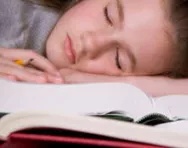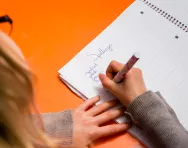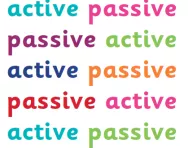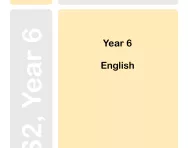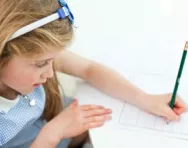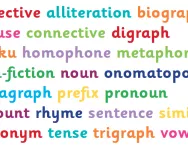Important update from TheSchoolRun
For the past 13 years, TheSchoolRun has been run by a small team of mums working from home, dedicated to providing quality educational resources to primary school parents. Unfortunately, rising supplier costs and falling revenue have made it impossible for us to continue operating, and we’ve had to make the difficult decision to close. The good news: We’ve arranged for another educational provider to take over many of our resources. These will be hosted on a new portal, where the content will be updated and expanded to support your child’s learning.
What this means for subscribers:
- Your subscription is still active, and for now, you can keep using the website as normal — just log in with your usual details to access all our articles and resources*.
- In a few months, all resources will move to the new portal. You’ll continue to have access there until your subscription ends. We’ll send you full details nearer the time.
- As a thank you for your support, we’ll also be sending you 16 primary school eBooks (worth £108.84) to download and keep.
A few changes to be aware of:
- The Learning Journey weekly email has ended, but your child’s plan will still be updated on your dashboard each Monday. Just log in to see the recommended worksheets.
- The 11+ weekly emails have now ended. We sent you all the remaining emails in the series at the end of March — please check your inbox (and spam folder) if you haven’t seen them. You can also follow the full programme here: 11+ Learning Journey.
If you have any questions, please contact us at [email protected]. Thank you for being part of our journey it’s been a privilege to support your family’s learning.
*If you need to reset your password, it will still work as usual. Please check your spam folder if the reset email doesn’t appear in your inbox.
Year 6 English: what your child learns
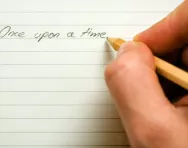
Literacy will still focus on the three areas of:
- Reading
- Writing
- Speaking and listening
This year, the children will be working on stories, poetry and non-fiction and concentrating on one or more of the following areas:
- Significant authors
- Short stories with flashbacks
- Biography and autobiography
- Journalism
- Persuasive writing
- Poetic imagery
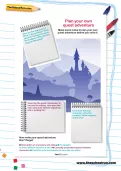
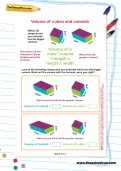
Start the Year 6 Learning Programme!
- Weekly maths & English worksheets
- Follows the National Curriculum
- Keeps your child's learning on track
Reading in Year 6 – your child will be:
- Continuing to read an increasingly wide range of fiction, poetry, plays and non-fiction texts
- Reading fiction texts both modern and old and from other cultures and traditions
- Preparing poems and plays to read aloud and to perform showing understanding through intonation and volume
- Inferring characters' feelings from their actions and justifying inferences with evidence
- Discussing how authors use figurative language
- Distinguishing between fact and opinion
Children should be allowed to choose a book at school to take home with them to read and will still be reading with their teacher in groups once a week (this is called guided reading).
Year 6 reading: try this at home
- Choose a classic novel to read together (or listen to an audiobook) – even fluent readers can struggle with longer books so reading together can help bring it to life
- If you have younger children, suggest your older one reads to them. It will help with their reading aloud and expression
- Use technology – downloads and apps could inspire reluctant readers to try new authors
Writing in Year 6 – your child will be:
- Using further prefixes and suffixes and understand the guidance for adding them
- Spelling some words with silent letters
- Learning the spelling of more difficult homophones (words which sound the same but are spelt differently)
- Using a dictionary and a thesaurus
- Understanding synonyms and antonyms
- Writing with neat, legible handwriting and with increasing speed
- Using the passive to affect the presentation of information in a sentence
- Using semi-colons, colons, dashes and hyphens
- Learning to select appropriate grammar and vocabulary
- Describing settings, characters and atmosphere in narratives
- Writing dialogue
- Structuring texts with a range of organisational devices, including time connectives, paragraphs, headings, bullet points, underlining
- Assessing and improve the effectiveness of their writing
Year 6 children are usually confident writers, able to express their ideas imaginatively and clearly, whether they are working on fiction, non-fiction or poetry.
Y6 writing: try this at home
- If your school has a newspaper or magazine, encourage your child to take part – they could write about a hobby or school club.
- Encourage your child to put together a yearbook for the end of primary school – include stories, pictures and interviews with pupils and teachers
- Suggest your child keeps a diary and writes in it regularly
Help your child practise what they're learning in school with our year 6 English worksheets, or browse through our selection of KS2 SATs papers to help them prepare for the SATs exams at the end of year 6. You can also follow our KS2 SATs Learning Journey.
Check your Y6 child's progress in English with our free Y6 English Progress checks, three mini-tests for the autumn, spring and summer terms.
Explore the Year 6 English and Maths Learning Journey programmes

